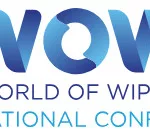Bangladesh is in headlines these days in the global media for the reasons the country must be gravely concerned. The now famous “Savar Rana Plaza collapse” has killed more than 1100 garment workers. On April 24, the 9-storied building–Rana Plaza collapsed in Savar bus stand area of Dhaka which housed five garment factories, a branch of bank and a market. About 3000 workers are estimated to be present in the complex at the time of the collapse. The disaster has sparked angry reaction from international human rights and labour groups to poor working conditions there.
Global brands like Target, Wal-Mart, and Gap are under fire for their Bangladesh-sourced goods. Two U.S. clothing labels, New Wave Style and Zad Enterprises, have already been plucked from in Rana Plaza’s rubble. The Walt Disney Co. has announced that it is pulling out of the country entirely. Wal-Mart – accounting for 12 percent of Bangladeshi exports – is now the target of criticism around the world. Bangladesh’s $20bn garment industry accounts for 77% of the country’s exports. Bangladesh may face stiff trade restrictions from the EU and the US if it doesn’t take major steps to improve the safety conditions and wages of its garment workers.
Labour unions insist that factory owners, the government, and international brands like H&M and GAP – whose business has made Bangladesh the second-largest exporter of garments in the world, behind China – take responsibility for the lives of the people working for them. The CSR [corporate social responsibility] mandates seem to be on paper only and what actually happens within the factories is very clear. There are people who refuse to accept these deaths as accidents. They feel that garment factories have become ‘slaughterhouses’. It is reported that the owners of the factories asked workers to enter the premises on the day of the collapse ignoring the cracks that appeared in the building the day before. The building collapsed due to “heavy machinery and high-capacity generators” functioning in various factories. The use of substandard construction materials has also been found.
IndustriALL, the Geneva-based international union has evolved an agreement called “The Accord on Fire and Building Safety in Bangladesh”. To date, the list of signatories includes: Abercrombie & Fitch, Aldi, Benetton, C&A, Carrefour, El Corte Ingles, Esprit, G-Star, H&M, Helly Hansen, Hess Natur, Inditex (Zara’s owner), jbc, KiK New Look, Lidl, Loblaws on behalf of its Joe Fresh and Primark brands, Mango, Marks & Spencer, Mothercare, N Brown Group, Next, PVH, Rewe, Sainsbury’s, Stockmann, Switcher, Tchibo, Tesco and WE Europe. The Accord includes legally binding commitments from the retailers to fund and mandate all necessary renovations and repairs at dangerous Bangladesh factories. It includes an independent inspection program with public reports of all inspections, and an obligation for brands and retailers to end business with any factory that refuses needed renovations. And, for the first time, it provides workers in Bangladesh the right to refuse to enter an unsafe building, with no fear of penalty.
The developments in Bangladesh are going to have an impact in other low cost production centers also where workers will obviously expect and demand better working conditions and wages. The pressure on retailers from the consumers is going to be immense and they will be forced to ensure better safety and working conditions as well as decent wages to workers by all the factories where their goods are manufactured. This would also lead to greater transparency and also more effective public watch on the so called ‘sweatshops’. ‘Cheap’ sourcing – in the garb of competition – cannot be allowed when the real but hidden aim is to increase profits. Certainly, consumers would never want cheap clothing at the cost of human lives.






